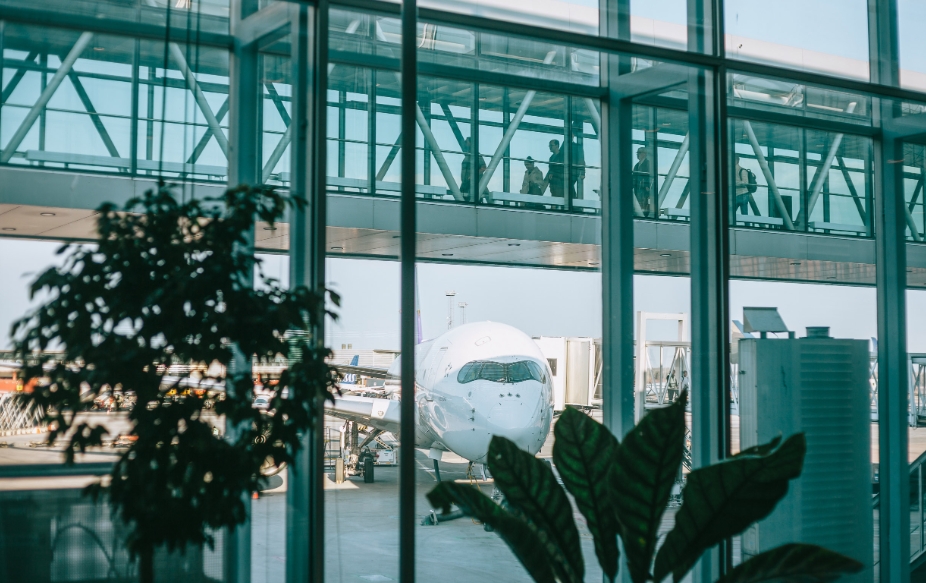Future Travel: A Glimpse at Transportation in 50 Years
During the 1970s, the concept of using maps on mobile phones, placing orders through restaurant robots, devising travel plans with the aid of ChatGPT, and even setting aside funds for voyages to the stratosphere seemed unimaginable. Yet, this has become our present reality. Consider the possibilities that lie ahead over the next fifty years.
EasyJet didn’t just unveil its vision for the future; it went a step further by producing a comprehensive report outlining future projections. A collaboration between scientists, technologists, and futurists was instrumental in shaping this report.
“We are continually exploring ways to enhance travel convenience for individuals throughout Europe—both in the present and for the generations to come. We engaged a panel of experts to envision the landscape of travel half a century from now. Undoubtedly, a promising future lies ahead. The way we vacation in 2070 is poised to undergo remarkable changes—creating a thrilling and distinctive experience,” affirms Johan Lundgren, CEO of easyJet.
Before the trip: directions and trends
The most popular destination will be a trip “out of the world”
By the year 2070, space travel appears to have become a regular occurrence. As a means of breaking away from the ordinary, altering the scenery, and unwinding, individuals will increasingly venture beyond our planet. Brief jaunts to the stratosphere and the moon could potentially materialize, transforming moon rover rides and space suit expeditions into alternatives for bus journeys and leisurely strolls.
It will be possible to “feel” the journey before the trip
In the next fifty years, travel agencies will need to bid farewell to traditional brochures and catalogs, embracing VR glasses, AR environments, and metaverses instead. The discussion of upcoming journeys will revolve around emotions, allowing individuals to virtually experience the voyage even before embarking on it (prompting the valid query: is the physical journey even necessary afterward?).
New old trend – healthy rest
According to experts, the concept of health tourism has been in vogue since the days of ancient Rome. However, by 2070, it is anticipated to ascend to an entirely new echelon: it appears that physicians themselves might prescribe it under the label of “treatment.” Engaging in activities like immersing in natural pools and plunging into frozen lakes will transform nature into both a “healing elixir for the soul and a remedy for the body.”
On the road: how transport, control and travel will change

Rides will be fast, easy and amazingly smooth
Fifty years from now, specialists are confident that we will witness the realization of flying taxis and wind tunnels, not solely confined to cinematic portrayals. Furthermore, this mode of transportation is predicted to become a standard means of commuting between urban areas and airports. Presently, around 250 companies are actively involved in the development of such technologies. It will be intriguing to observe the innovations they bring forth!
Checks will be automatic, and you yourself will become a passport
In the year 2070, all documents will have undergone precise digitization. Access to these documents will no longer be limited solely to fingerprints and Face ID; it will also extend to heartbeat recognition, as each person’s heartbeat pattern is distinctively unique.
The era of queues and inspections will be a thing of the past, as all procedures will unfold seamlessly through automation. Envision a scenario: as you approach the airport, facial recognition systems will identify you, record your arrival, and transmit guidance to your smartphone regarding your departure gate. Meanwhile, vehicles will scan your luggage en route, and bags with intelligent tags will be promptly dispatched for loading as soon as you reach the terminal, whether it’s via train or taxi.
Security zones and passport control will fade into distant memories. You won’t even notice the security checks as they will seamlessly occur without requiring your direct involvement.
Everyone (or many) will become minimalists
The sale of large suitcases is likely to be phased out. A compact bag or backpack will suffice for your travels. How is this possible? Instead of packing an entire wardrobe, only your body measurements will be required. Upon reaching your destination, 3D printers will produce everything you require: T-shirts, jeans, jackets, shoes. At the end of your journey, all items can be returned for recycling, with the materials repurposed to create new items for incoming travelers.
Airports will not be places of waiting, but places of rest
Airports will transform into destinations you’ll eagerly want to enjoy: blending elements of shopping centers with recreational spaces, featuring play areas for children and spa facilities for adults. Consequently, in fifty years, travelers will be inclined to arrive early – a choice that makes perfect sense.
Everything will be payable using a unified currency: a cryptocurrency. There will be no need for applications featuring exchange rates or rates at all.
Flying can be enjoyed
The era of uncomfortable seats and seat belts fastened tightly appears to be coming to an end, marking a new era for air travel.
Gone are the days of tucking your legs and avoiding your neighbor’s shoulder – seats are now tailored to various body types, heights, and sizes. Smart materials will even cater to temperature preferences, ensuring passengers stay cool or warm as needed, while also incorporating antimicrobial properties.
In the year 2070, airplanes will (hopefully!) shed their reputation as one of the most unsustainable modes of transportation. With hydrogen-powered aircraft engines, they will be capable of achieving zero CO2 emissions, putting an end to the concept of “flying shame” once and for all.
Entertainment on board
Air travel will evolve into a new form of leisure akin to cruises. Airplanes will break away from the traditional row seating layout. Passengers will have access to bars and communal seating areas, fostering interactions between travelers. Cinema experiences will be transformed through holograms and VR glasses, departing from the conventional seatback screens. Widespread internet connectivity will be a reality at last.
“The journey itself will be as much a part of the vacation as arriving at your destination,” experts say.
Hotels of the future: the most comfortable and super personal

A new trend – recreation under the ground and under water
The desire to venture beyond not only our physical world but also the boundaries of everyday reality will drive exploration. Naturally, the travel industry will be well-prepared to cater to these aspirations.
According to experts, a new trend in leisure for 2070 will be underground and underwater hotels, offering people a chance to retreat and escape their routine. While the destinations may remain familiar, such as seas, deserts, and mountains, the experiences and sensations will be entirely unique.
Hotels will become adaptive
Hotel vacations will transition into personalized and fully automated experiences. When travelers depart the airport, autonomous vehicles will notify hotel personnel of their impending arrival. Check-in procedures will occur remotely, and upon reaching the destination, guests will be welcomed by their own digital personal concierge.
Access to rooms will be granted through facial recognition scans. The rooms will offer adaptability, allowing guests to select their preferred design and even adjust the placement of walls. These spaces will be equipped with intelligent systems and virtual assistants, enabling guests to control heating and prepare coffee remotely through their smartphones. Voice assistants like Alexa will assist in ordering amenities such as towels or making restaurant reservations.
Focus on green solutions and clean energy
Hotels will gradually reduce their reliance on traditional carbon-based energy sources. More and more businesses will choose sustainable alternatives like solar panels, wind turbines, and even harnessing guest movements for energy. The commitment to eco-friendliness will extend beyond just names; hotels will become more connected to nature both physically and technologically. Guest rooms will likely replicate outdoor environments using innovative design practices, allowing guests to enjoy virtual views of clouds and oceans, forests and mountains, jungles and waterfalls—whatever suits their preferences.
How we will relax: a new level of impressions
Artificial intelligence will be able to choose for you the “right rest”
Life is too precious to visit destinations that don’t align with your preferences. Thanks to AI technologies, travel agencies will have the capability to select precisely what suits you—even when you’re uncertain about your preferences. Artificial intelligence will suggest destinations and activities that best align with your interests, identify compatible travel companions, and recommend events that match your mood.
Time travel becomes a reality
However, the experience won’t be exactly as you might envision. Physically, you’ll remain in the present. Yet, mixed reality technologies will allow you to journey back to the past. Picture yourself attending the inaugural Olympic Games, wandering through a bustling medieval market, witnessing the iconic Stone Age winter solstice celebration at Stonehenge, and immersing yourself in other significant historical moments.
Tactile costumes will enhance emotions. So with every cell of the body you can feel that you are in that moment.
Time for new activities: underwater safaris, flyboarding and others
Human nature drives the constant quest for deeper exploration, broader horizons, and more exciting experiences. This pursuit will continue to bring forth new top-tier activities like underwater safaris, hover and flyboarding, E-foiling, and more (for more details, refer to the complete report). Meanwhile, traditional classics are likely to endure as well. After all, life is about embracing a variety of experiences, isn’t it?
Travel will become accessible to everyone
Advancements in technology are on track to create a realm of equality. Through lightweight exoskeletons and wearable bionic devices, even individuals with restricted mobility can break free from limitations. Travel will become accessible to all, and the concept of borders will ultimately fade away.

